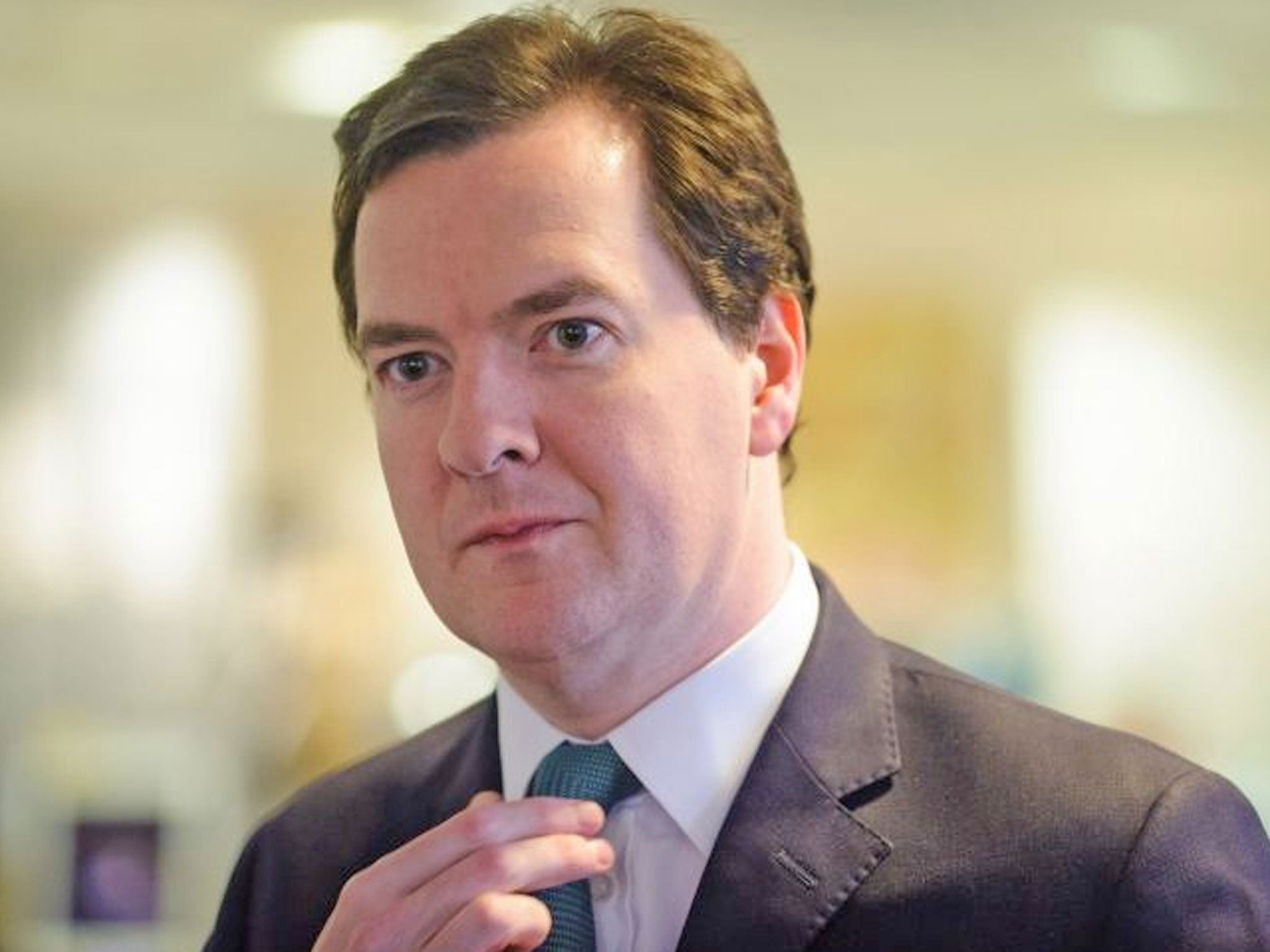Minor dip in public sector borrowing highlights pressure on UK finances
Osborne hoping official GDP figures on Thursday show growth in first quarter, narrowly avoiding triple-dip recession

Britain's finances remain under intense pressure after official figures today showed borrowing fell only marginally in the last financial year.
Public sector net borrowing in the 12 months to the end of March was £120.6 billion - just £300 million lower than the previous year, the Office for National Statistics said.
The Treasury insisted the reduction showed the Government was "fixing" the country's economic problems.
But Labour said it marked the final failure of Chancellor George Osborne's deficit reduction strategy - requiring 400 years to balance the books at the current rate of progress.
Mr Osborne will now be hoping official GDP figures on Thursday show the UK economy grew in the first quarter of the year, avoiding a triple-dip recession.
Treasury Chief Secretary Danny Alexander denied the Government's strategy had "stalled" but admitted that progress was slower than they hoped.
He warned that departmental budgets which were not ring-fenced faced a further cuts of between 5per cent to 6per cent in the forthcoming spending round.
"There is a collective agreement around the Cabinet table that we have to deal with the deficit, that we have to continue the action necessary to get the nation's finances back on the right track," he told BBC Radio 4's The World at One.
"Yes, it is tough, yes, the road is harder and longer than we first forecast. The commitment is unwavering to that.
"We are going to stick to the plan that we set out because it is the right thing for this country."
Labour Treasury spokesman Chris Leslie said that with borrowing expected to be broadly the same this year, the Government was having to borrow £245 billion just to meet the costs of its "economic failure".
"These figures show that the Government's failed economic policies have been totally self-defeating as a flat-lining economy has seen deficit reduction grind to a halt," he said.
"George Osborne no longer has a deficit reduction plan. In fact, at this rate, it will take 400 years to balance the books."
In the City, economists were unimpressed by the figures. Howard Archer of IHS Global Insight said the pace of deficit reduction "makes a snail look fast".
"March public finance data are unlikely to take the heat off the Chancellor and he faces another very difficult year ahead on both the growth and the public finance fronts," he said.
Mr Osborne, meanwhile, rejected criticism a warning last week by IMF chief economist Olivier Blanchard that he was "playing with fire" if he continued with his current strategy.
"That is one voice," the Chancellor told the BBC Radio 4 Today programme." The chief economist has a well known set of views on this which he has expressed in various forms over several years."
The ONS said delayed or slashed government departmental spending helped drive net borrowing excluding financial interventions such as bank bailouts £1.6 billion lower to £15.1 billion in March.
The independent Office for Budget Responsibility's (OBR) forecast for public sector debt of £120.9 billion in the 2012-13 year strips out boosts from the transfer of Royal Mail pension assets to the public purse, plus cash transfers from the Government's quantitative easing programme.
Once these were factored in, public sector debt fell £34.7 billion to £86.2 billion for 2012-13, down from £120.9 billion a year earlier. The OBR sees the underlying deficit remaining stubbornly high at £120 billion in the year to the end of March 2014.
Total public sector net debt was a record £1.186 trillion in March, equating to 75.4per cent of GDP. Slow progress in cutting the deficit will pile further pressure on the Government, after ratings agency Fitch last week stripped the UK of its AAA debt rating on its weak outlook and high debt.
Net debt as a percentage of GDP was up from £1.1 trillion or 71.8per cent a year earlier.
PA
Subscribe to Independent Premium to bookmark this article
Want to bookmark your favourite articles and stories to read or reference later? Start your Independent Premium subscription today.

Join our commenting forum
Join thought-provoking conversations, follow other Independent readers and see their replies